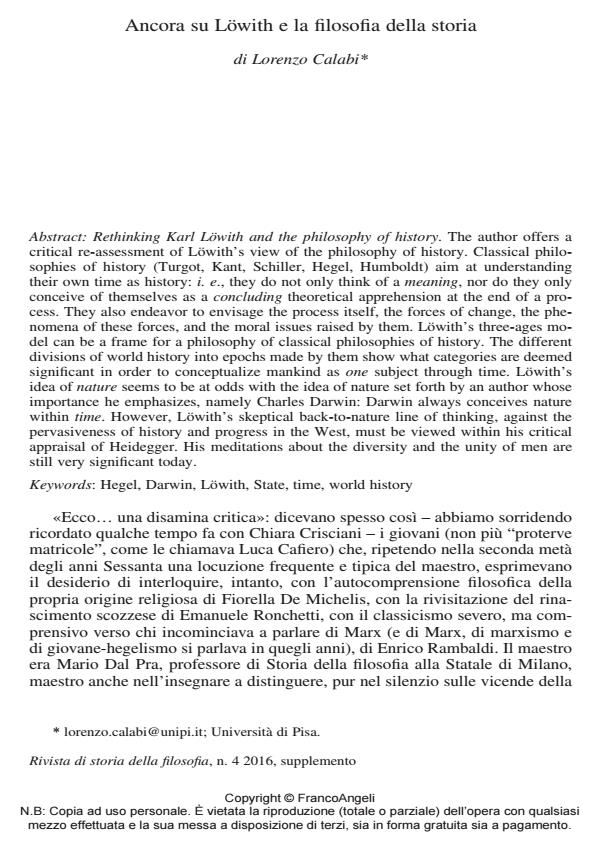Rethinking Karl Löwith and the philosophy of history
Journal title RIVISTA DI STORIA DELLA FILOSOFIA
Author/s Lorenzo Calabi
Publishing Year 2016 Issue 2016/suppl. 4
Language Italian Pages 17 P. 321-337 File size 122 KB
DOI 10.3280/SF2016-004-S1022
DOI is like a bar code for intellectual property: to have more infomation
click here
Below, you can see the article first page
If you want to buy this article in PDF format, you can do it, following the instructions to buy download credits

FrancoAngeli is member of Publishers International Linking Association, Inc (PILA), a not-for-profit association which run the CrossRef service enabling links to and from online scholarly content.
The author offers a critical re-assessment of Lowith’s view of the philosophy of history. Classical philosophies of history (Turgot, Kant, Schiller, Hegel, Humboldt) aim at understanding their own time as history: i. e., they do not only think of a meaning, nor do they only conceive of themselves as a concluding theoretical apprehension at the end of a process. They also endeavor to envisage the process itself, the forces of change, the phenomena of these forces, and the moral issues raised by them. Lowith’s three-ages model can be a frame for a philosophy of classical philosophies of history. The different divisions of world history into epochs made by them show what categories are deemed significant in order to conceptualize mankind as one subject through time. Lowith’s idea of nature seems to be at odds with the idea of nature set forth by an author whose importance he emphasizes, namely Charles Darwin: Darwin always conceives nature within time. However, Lowith’s skeptical back-to-nature line of thinking, against the pervasiveness of history and progress in the West, must be viewed within his critical appraisal of Heidegger. His meditations about the diversity and the unity of men are still very significant today.
Keywords: Hegel, Darwin, Lowith, State, time, world history
- Karl Löwith Mike Rottmann, pp.237 (ISBN:978-3-476-05743-3)
Lorenzo Calabi, Ancora su Lowith e la filosofia della storia in "RIVISTA DI STORIA DELLA FILOSOFIA" suppl. 4/2016, pp 321-337, DOI: 10.3280/SF2016-004-S1022